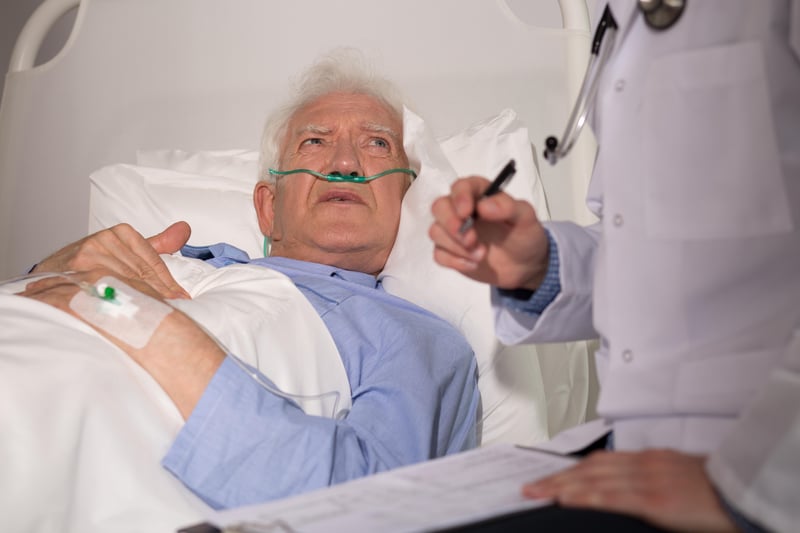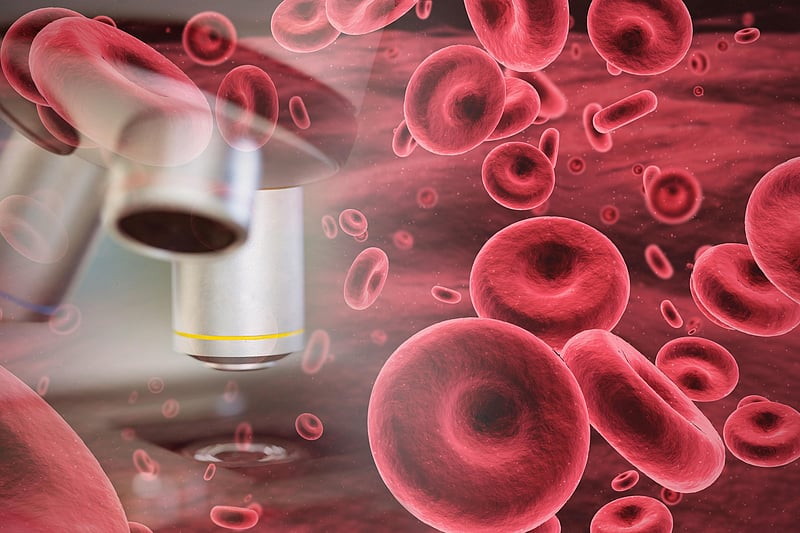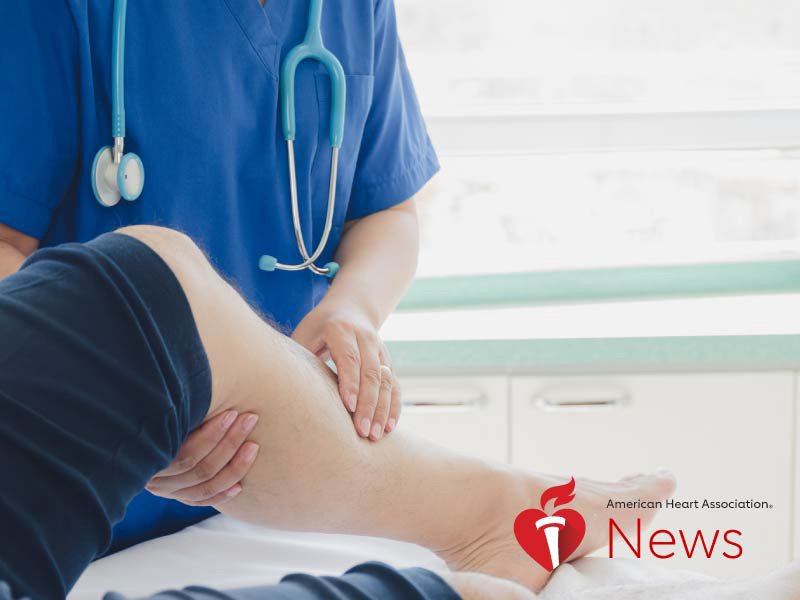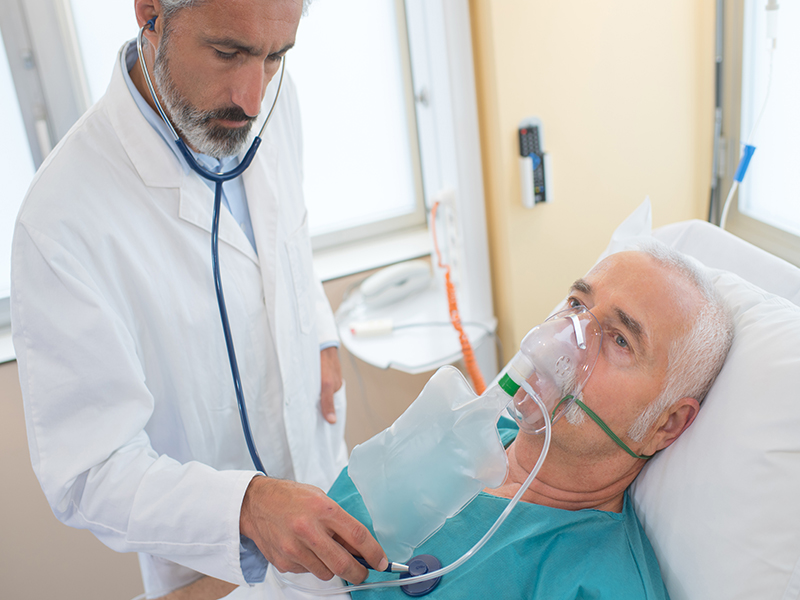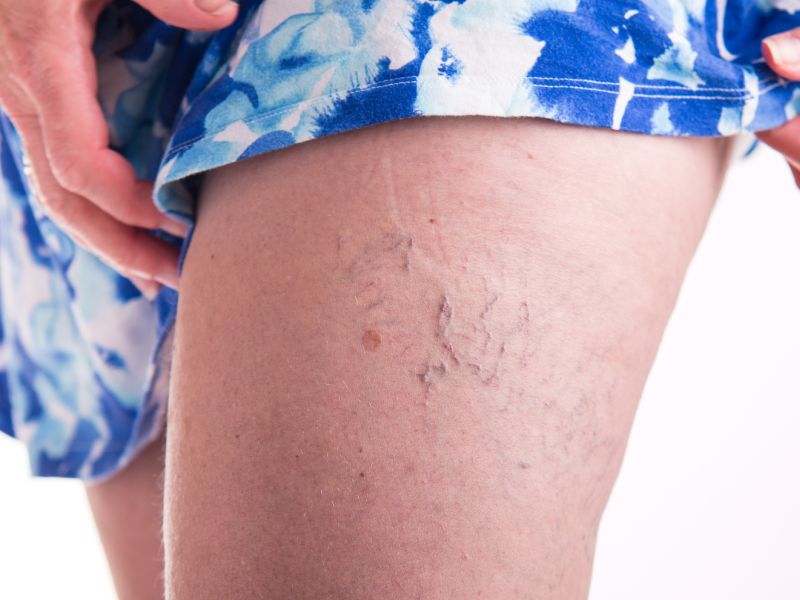Manténgase sano!
Resultados de su búsqueda "Deep Vein Thrombosis".
Resultados de noticias de salud - 15
Long periods of immobility can put people at risk of dangerous blood clots -- yet hibernating bears lie around for months without any problem. Now scientists think they've figured out why.
The researchers hope the insight can eventually lead to new drugs for preventing life-threatening blood clots -- the kind that begin in the legs but can travel to the brain and cause a stroke, or to the...
- Amy Norton HealthDay Reporter
- |
- April 14, 2023
- |
- Página completa
Researchers have uncovered a serious risk for folks who have an extra X or Y chromosome.
Those with the genetic condition known as supernumerary sex chromosome aneuploidy have a risk for blood clots in a deep vein or lung that's four or five times higher than usual, a new study
- Cara Murez HealthDay Reporter
- |
- January 27, 2023
- |
- Página completa
Doctors need to be aware that prostate cancer raises a man's risk of serious and potentially deadly blood clots by about 50%, researchers say.
All cancer patients are at increased risk for venous thromboembolism (VTE), a dangerous but treatable blood clot in the veins that is a leading cause of death in cancer patient...
- By Robert Preidt HealthDay Reporter
- |
- May 25, 2022
- |
- Página completa
Cancer patients' blood type may play a role in their risk for dangerous blood clots, researchers say.
Cancer and its treatments increase the risk for venous thromboembolism (VTE). That includes de...
- By Robert Preidt HealthDay Reporter
- |
- April 15, 2022
- |
- Página completa
COVID-19 increases people's risk of dangerous blood clots and bleeding for months after infection, researchers say.
The new findings suggest that COVID-19 is an independent risk factor for deep vein thrombosis, pulmonary embolism and bleeding.
"Our findings arguably support [treatment] to avoid thrombotic events, especially for high-risk patients, and strengthen the importance of va...
- By Robert Preidt HealthDay Reporter
- |
- April 7, 2022
- |
- Página completa
Who hasn't started to watch a new drama series on TV, and suddenly realize that hours have slipped by as they binged on one episode after the next?
Now, a new study suggests that too much binge-watching may raise the risk of life-threatening blood clots in the legs or lungs by 35%.
"Prolonged TV viewing, which involves immobilization, may increase the risk of venous thromboembolism,...
- Steven Reinberg HealthDay Reporter
- |
- January 20, 2022
- |
- Página completa
For people suffering from clots in their legs, a new study finds that one of two commonly used blood thinners is safer and more effective than the other.
Venous thromboembolism (VTE) can cause clots to form in the deep veins in the legs, and if one breaks loose it can travel to the lungs and cause breathing problems and even death. In this study, researchers looked at the risks and benefi...
- Steven Reinberg HealthDay Reporter
- |
- December 8, 2021
- |
- Página completa
Anyone who's ever undergone knee replacement understands the real and troubling risk of post-op blood clots. Many patients are told take a daily blood thinner pill long after their procedure.
But a new study finds that a one-time injection of an experimental blood thinner called abelacimab may greatly reduce the odds for these clots in recovering knee replacement patients.
The rese...
- Ernie Mundell and Robert Preidt HealthDay Reporters
- |
- July 20, 2021
- |
- Página completa
A flu shot might offer some protection against severe effects of COVID-19, a new study suggests.
If you are infected with COVID-19, having had a flu shot makes it less likely you will suffer severe body-wide infection, blood clots, have a stroke or be treated in an intensive care unit, according to the study.
"Our work is important," said study co-author Dr. Devinder Singh, noting l...
- Steven Reinberg HealthDay Reporter
- |
- July 12, 2021
- |
- Página completa
Researchers have reported the first case of COVID-19 causing dangerous, recurring blood clots in a patient's arm.
The report offers new insight into how the damage of inflammation caused by COVID-19 can linger and how best to treat recurring clots, the Rutgers University researchers said.
There have been reports of lower extremity blood clots in patients after COVID-19, but this is ...
- Robert Preidt
- |
- May 19, 2021
- |
- Página completa
It may not be a good idea to take a daily low-dose aspirin if you're also taking a widely used class of blood thinners called direct oral anticoagulants (DOACs), researchers caution.
DOACs include drugs such as Eliquis (apixaban), Pradaxa (dabigatran), Lixiana (edoxaban) and Xarelto (rivaroxaban). They're used to help prevent strokes from atrial fibrillation or for the treatment of what's...
- Robert Preidt and Ernie Mundell HealthDay Reporters
- |
- April 22, 2021
- |
- Página completa
Blood clots in the veins – particularly those that break off and travel to the lungs – can be fatal and have become increasingly so. Yet many adults know little about their risks or the growing evidence that healthy habits can help prevent clots.
"A key barrier in the United States is that awareness of this disease is not very good," Dr. Mary Cushman said of the condition kn...
- |
- October 13, 2020
- |
- Página completa
In a small French study, three-quarters of all COVID-19 patients admitted to intensive care went on to experience a dangerous blood clot in the leg that can travel to the lungs and potentially cause death.
Known as a DVT, the condition first gained notoriety as so-called "economy class syndrome," when passengers on long-haul flights developed them after sitting still for too long. Bu...
- E.J. Mundell
- |
- May 29, 2020
- |
- Página completa
People with what's known as the "metabolic syndrome" are vulnerable to recurring blood clots, new research shows.
Metabolic syndrome is a collection of conditions, including obesity, high blood sugar, high cholesterol and high blood pressure. These factors put people at risk for diabetes, heart disease and a type of blood clot known as deep vein thrombosis (DVT), researchers say.
...- Steven Reinberg
- |
- January 9, 2020
- |
- Página completa
About half of the population will one day have a vein problem.
For some, it will involve the thinner, blotchy spider veins that don't bother some people, but cause itching or burning in others. Still others will be plagued by the more noticeable bulging of varicose veins.
Most varicose veins appear in the legs due to the pressure of body weight, the force of gravity and the ...
- Len Canter
- |
- January 17, 2019
- |
- Página completa


